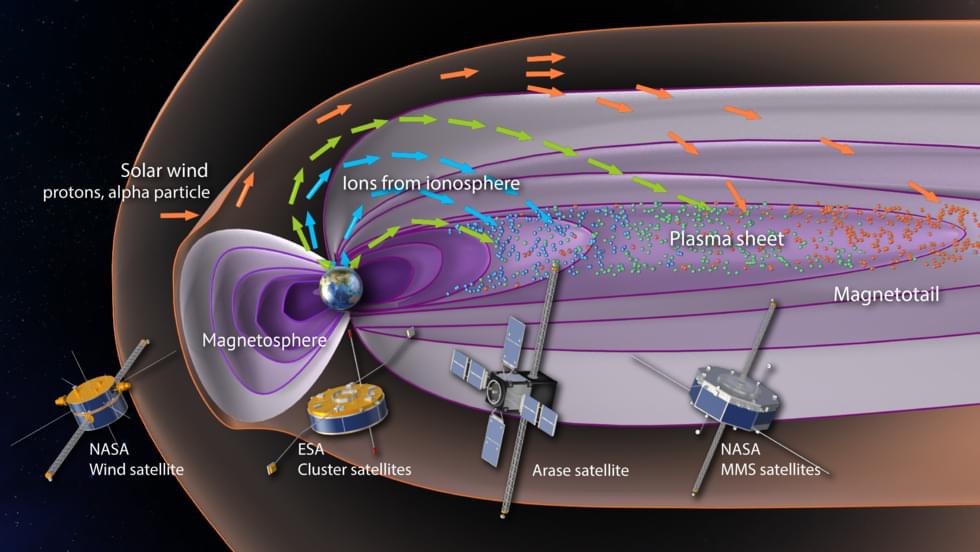A study from an international team led by researchers from Nagoya University in Japan and the University of New Hampshire in the United States has revealed the importance of the Earth’s upper atmosphere in determining how large geomagnetic storms develop. Their findings reveal the previously underestimated importance of the Earth’s atmosphere. Understanding the factors that cause geomagnetic storms is important because they can have a direct impact on the Earth’s magnetic field such as causing unwanted currents in the power grid and disrupting radio signals and GPS. This research may help predict the storms that will have the greatest consequences.
Scientists have long known that geomagnetic storms are associated with the activities of the Sun. Hot charged particles make up the Sun’s outer layer, the one visible to us. These particles flow out of the Sun creating the ‘solar wind’, and interact with objects in space, such as the Earth. When the particles reach the magnetic field surrounding our planet, known as the magnetosphere, they interact with it. The interactions between the charged particles and magnetic fields lead to space weather, the conditions in space that can affect the Earth and technological systems such as satellites.
An important part of the magnetosphere is the magnetotail. The magnetotail is the part of the magnetosphere that extends away from the Sun, in the direction of the solar wind flow. Inside the magnetotail is the plasma sheet region, which is full of charged particles (plasma). The plasma sheet is important because it is the source region for the particles that get into the inner magnetosphere, creating the current that causes geomagnetic storms.










Comments are closed.